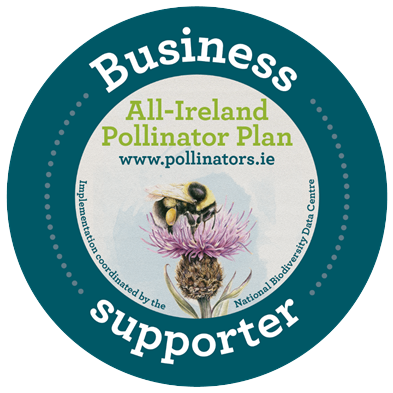A pollinator is an animal that causes plants to make fruit or seeds. They do this by moving pollen from one part of the flower of a plant to another part. This pollen then fertilizes the plant. Only fertilized plants can make fruit and/or seeds, and without them, the plants cannot reproduce.
The All-Ireland Pollinator Plan is about all of us, from businesses to schools to gardeners to local authorities, coming together to try to create an Ireland where pollinators can survive and thrive.
Native honey bees are the most commonly known pollinator. They are 'volunteers' that work tirelessly pollinating a variety of crops. Recent problems with colony collapse and bee pests have put the wild honey bee population in danger, leading to many initiatives to aid honey bee health.
Examples of many common garden shrubs such as berberis, forsythia, potentilla, lavender, rosemary, mahonia, viburnum and cotoneaster are excellent sources of food for our pollinators.
Other examples include the native hawthorn, hazel, alder, rowan, crab apple, willow, horse chestnut, ornamental cherry and most fruit trees. Do your best to provide habitat and supplemental food sources that support a variety of pollinators and wildlife.
Sustainability focuses on meeting the needs of the present without compromising the ability of future generations to meet their needs.
Biodiversity refers to the variety of life on Earth at all its levels, from genes to ecosystems, and can encompass the evolutionary, ecological, and cultural processes that sustain life.

